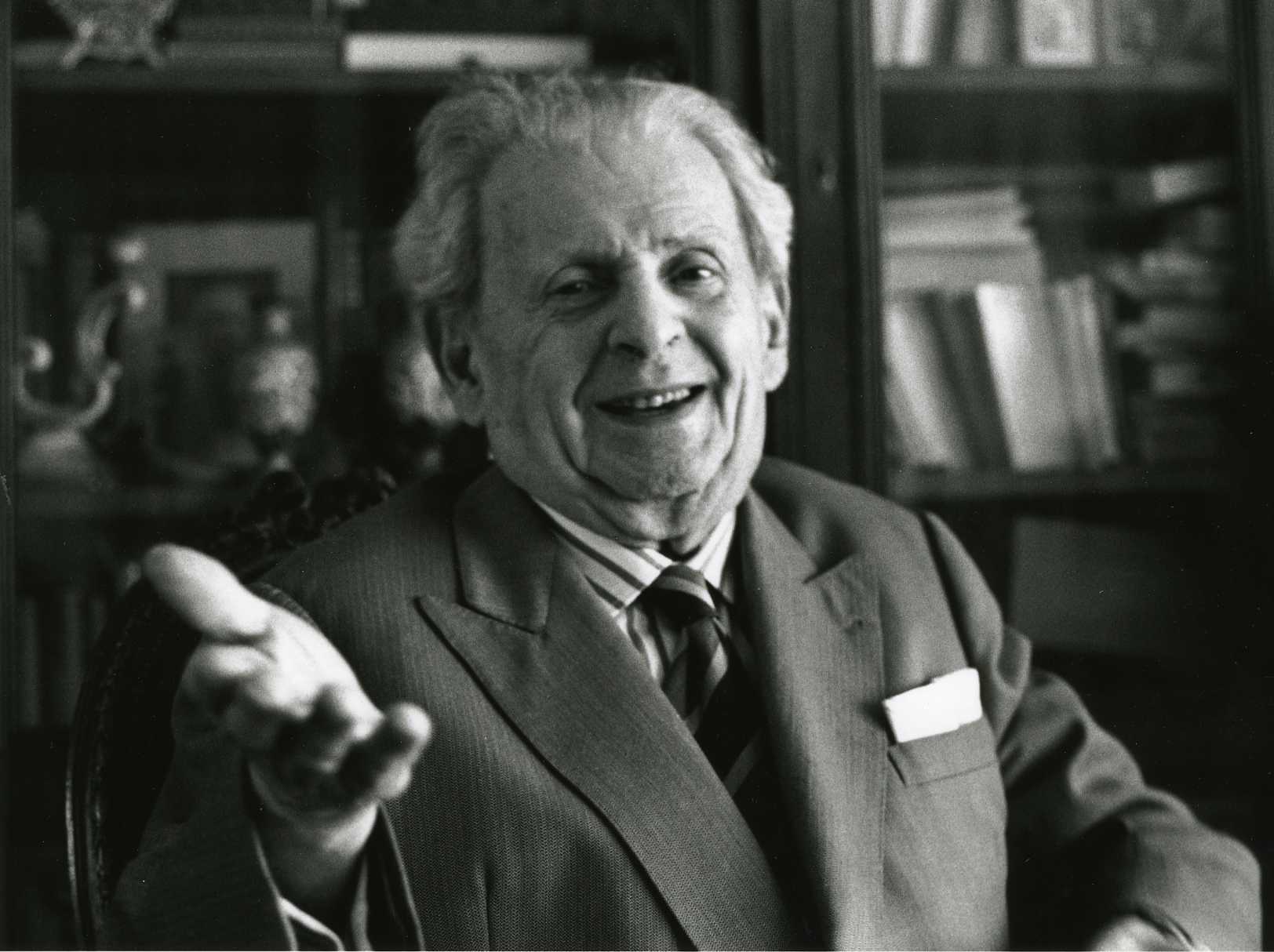
Emmanuel Lévinas is a philosopher whose ideas and writings have had a profound impact on the field of ethics and phenomenology. Born on January 12, 1906, in Lithuania, Lévinas went on to become one of the most influential philosophers of the 20th century. His philosophical works primarily focus on themes of ethics, responsibility, and the encounter with the Other.
In this article, we will delve into the life and work of Emmanuel Lévinas, exploring intriguing facts that shed light on his contributions to philosophy. From his early life and education to his groundbreaking philosophical concepts, we will uncover interesting aspects of his legacy that continue to resonate today.
Key Takeaways:
- Emmanuel Lévinas, a philosopher shaped by his Jewish heritage and the Holocaust, emphasized the ethical responsibility towards others and the importance of recognizing their vulnerability and humanity.
- Lévinas’s philosophy focused on the ethical significance of encountering another person, prioritizing the needs of the Other over self-interest, and engaging in acts of compassion and justice.
The Early Life of Emmanuel Lévinas
Emmanuel Lévinas was born in Lithuania in 1906 and later moved to France. His Jewish heritage greatly influenced his philosophical views and served as a foundation for his ethical theory.
The Phenomenology of Edmund Husserl
Lévinas studied under the renowned German philosopher Edmund Husserl, whose phenomenology greatly shaped Lévinas’s philosophical thinking. This influence can be seen in Lévinas’s exploration of the subject-object relationship and the nature of consciousness.
The Holocaust and Its Impact
One of the most significant events in Lévinas’s life was his experience during the Holocaust. This harrowing period deeply affected his philosophy, leading him to focus on the ethical responsibility we have towards others and the importance of recognizing the vulnerability and humanity of those around us.
The Face-to-Face Encounter
Lévinas introduced the concept of the “face-to-face” encounter, emphasizing the ethical significance of encountering another person. According to Lévinas, when we encounter another person’s face, we are confronted with their uniqueness, vulnerability, and the ethical demand to respond to their needs.
The Other as a Source of Ethics
Lévinas argued that true ethical responsibility arises when we prioritize the needs of the Other over our own self-interest. By recognizing the humanity and uniqueness of the Other, we are compelled to respond to their suffering and actively engage in acts of compassion and justice.
Philosophy as an Ethical Discourse
Lévinas believed that philosophy should not only be a theoretical pursuit but also a practical discourse focused on ethics. He emphasized the importance of living ethically and taking responsibility for the Other, rather than simply engaging in abstract philosophical debates.
The Critique of Totality and the Infinite
Lévinas critiqued Western philosophy’s obsession with totality and the infinite. He argued that ethics should be rooted in the finite and the particular, emphasizing the significance of personal encounters and relationships over abstract concepts and universal principles.
The Influence of Judaism
As a philosopher deeply influenced by his Jewish heritage, Lévinas incorporated Jewish ethical teachings into his philosophical framework. He explored themes of responsibility, justice, and the importance of the Other in Jewish thought, providing a unique perspective on ethical philosophy.
Dialogues with Other Philosophers
Lévinas engaged in conversations and debates with other influential philosophers of his time, including Jacques Derrida and Maurice Blanchot. These dialogues led to the development of new philosophical ideas and enriched the discourse on ethics and responsibility.
Lévinas’s Existentialist Roots
Despite his association with phenomenology, Lévinas also had existentialist influences, particularly from philosophers such as Jean-Paul Sartre. This combination of phenomenological and existentialist ideas contributed to the distinctiveness of Lévinas’s ethical philosophy.
Legacy and Impact
Emmanuel Lévinas’s philosophical ideas continue to be influential in various fields, including ethics, philosophy of religion, and political theory. His emphasis on the ethical responsibility towards the Other has sparked numerous debates and inspired scholars to delve deeper into the complexities of ethics and human interaction.
Critiques and Controversies
Like any influential philosopher, Lévinas’s ideas have also faced criticism and controversy. Some argue that his emphasis on the Other may neglect individual autonomy and the importance of selfhood. These discussions contribute to the ongoing exploration of ethical theories and the complexities of human relationships.
Conclusion
In conclusion, Emmanuel Lévinas was a renowned philosopher whose ideas and contributions have left a lasting impact on the fields of ethics and phenomenology. Through his concept of the Other, Lévinas emphasized the importance of recognizing and respecting the individuality and autonomy of others. He believed that ethical responsibility arises from our encounter with the Other, urging us to prioritize the well-being and dignity of others in our actions and decisions.
Lévinas’ philosophy also tackled the limits of knowledge and the transcendence of the self. His works continue to inspire scholars, ethicists, and philosophers, inviting critical reflection and stimulating discussion on topics such as alterity, responsibility, and ethical relationships.
By exploring the intriguing facts about Emmanuel Lévinas, we gain a deeper understanding of his life, ideas, and philosophical legacy. His concepts resonate with contemporary challenges and provide valuable insights into the complexities of human existence and our moral obligations towards one another.
FAQs
Q: What were Emmanuel Lévinas’ main philosophical contributions?
A: Emmanuel Lévinas made significant contributions to the fields of ethics and phenomenology. His concept of the Other and the ethical responsibility towards others are central to his philosophy.
Q: How did Emmanuel Lévinas differ from other philosophers of his time?
A: Lévinas emphasized the primacy of ethics over epistemology, challenging the traditional philosophical focus on the self and knowledge. He explored the ethical dimensions of human existence and argued for the importance of human relationships.
Q: What is the significance of Lévinas’ concept of the Other?
A: Lévinas’ concept of the Other highlights the ethical responsibility we have towards others. It emphasizes acknowledging and respecting the individuality and autonomy of others, recognizing their value and prioritizing their well-being.
Q: How has Lévinas’ philosophy influenced contemporary discourse?
A: Lévinas’ ideas continue to shape discussions on ethics, alterity, and the ethical implications of our actions and decisions. His emphasis on the Other challenges us to consider the impacts of our choices on others and to prioritize ethical relationships.
Q: Where can I find more information on Emmanuel Lévinas’ works?
A: Various books and scholarly articles have been written on Lévinas’ philosophy. Academic libraries and online research databases are good sources for accessing his works, as well as the publications of Lévinas scholars and experts.
If you're fascinated by Emmanuel Lévinas's insights, why not explore other groundbreaking thinkers and ideas? Uncover the unbelievable facts about Edmund Husserl, the founder of phenomenology, or dive into the captivating world of the Face-to-Face encounter in the eponymous movie. For those seeking wisdom from Jewish philosophical traditions, embark on a journey through Maimonides's mindblowing contributions. Each topic offers a unique perspective that will expand your intellectual horizons and leave you pondering life's big questions. So, which captivating subject will you investigate next?
Was this page helpful?
Our commitment to delivering trustworthy and engaging content is at the heart of what we do. Each fact on our site is contributed by real users like you, bringing a wealth of diverse insights and information. To ensure the highest standards of accuracy and reliability, our dedicated editors meticulously review each submission. This process guarantees that the facts we share are not only fascinating but also credible. Trust in our commitment to quality and authenticity as you explore and learn with us.


